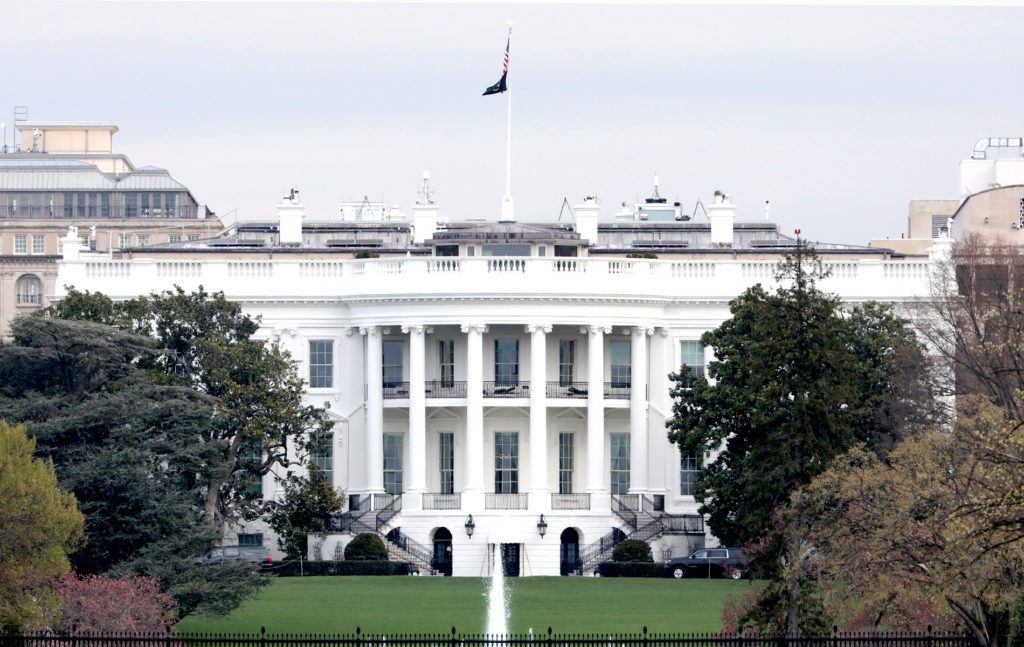
Today, July 21, in an astonishing moment for American history, President Joseph Biden made the right decision for the country by announcing that he would no longer pursue his party’s nomination for president, allowing Democrats the ability to identify a new standard-bearer for the November election.

The president’s announcement follows weeks of concern about his mental acumen and physical health. After his disastrous debate performance, which laid bare his diminished state, there has been a widespread call from media personalities, donors, and even elected officials for him to withdraw.
While this development is historic, it is not entirely without precedent in American life. Presidents James K. Polk, James Buchanan, Rutherford B. Hayes, and Calvin Coolidge all chose not to pursue an additional term.
However, not since 1968, when President Lyndon B. Johnson refused to campaign for or accept the nomination of his party, have Americans encountered an incumbent who chose not to run. Johnson, in the face of growing domestic discontent with the Vietnam War, spoke of his desire for the presidency to be a unifying force in American life and called Americans to “guard against divisiveness and all its ugly consequences.” Thus, rather than devote his time to campaigning, he would spend the remainder of his term focused on executing the responsibilities of his office and faithfully fulfilling the duties required of him by the American people.
In our current moment this is more than just a historic decision. President Biden’s announcement is clearly the correct decision. Not only is it a recognition of what is visibly evident to all of us, but it confirms a sentiment expressed by President Calvin Coolidge when he told the press he would not seek another term in the White House: “The presidential office takes a heavy toll on those who occupy it and those who are dear to them.”
Our nation deserves a leader who is able to carry out the high demands of the office of president. Currently, there are crises facing this nation which require much from anyone seeking to hold the office: an immigration crisis at the border; economic discontent for many Americans; international threats with a resurgent Russia and emboldened China; and open hostility in the Middle East. Any one of these would be a monumental task, but whoever is president must be able to meet the challenges of all of them, often simultaneously. As post-debate polling reflects, large majorities of Americans—on a bipartisan basis—held serious doubts about the president’s ability to do so actively and effectively for another four years. Bowing out now is an acknowledgment of both one’s own limits and political reality.
However, despite the significance of this moment, the decision to endorse Vice President Kamala Harris is an interesting one. Perhaps it was determined she is the strongest nominee for the Democrats. Perhaps party leaders felt delegates to the convention would not be able to identify the strongest candidate. Or, even if they could, the process to get there would be too politically fraught.
Should delegates to the Democratic National Convention confirm her as the nominee, it will be cause for considerable concern among pro-life advocates and those who hold to a biblical definition of marriage. For example, she touted the Reproductive FACT Act, which required pregnancy resource centers to offer information to pregnant mothers about where they could obtain an abortion (which was thankfully ruled unconstitutional by the United States Supreme Court in the NIFLA case) and she refused to defend a state constitutional amendment passed by California voters declaring only marriages between a man and woman as valid. This is not exactly a record that signals a willingness to engage mainstream conservative Americans.
Biden’s decision will have ripple effects throughout the political world and cause campaign operatives to rethink their strategies for the fall. I will leave it to the pundits to speculate about the road ahead, but a word for both parties is in order.
For the Democratic Party, the nominating convention is less than a month away. This decision puts that event even more in the spotlight. Given the GOP’s recent moves to distance itself from biblical views about life and marriage, if party officials were wise, they would signal a newfound openness to voters who care about these issues. That would mean finally becoming a party that ensures our most essential right is accessible to our most vulnerable members of society—the preborn. To date, there has not been a Democratic platform plank which protects the sanctity of life. While I am not naïve about the likelihood that the current Democratic Party will affirm the dignity of the preborn and welcome those voters to their coalition, I believe that the party could do far more to ensure its rhetoric about the vulnerable matches action for the most marginalized among us.
For Republican candidates, even with the national platform now being a constitutionally incoherent document on life, this is a time to reaffirm their individual commitment to the sanctity of life. Rather than abandon the protection of our preborn neighbors to the states, now is the time to articulate their belief in a national right to life. There should at least be members of one party (but both agreeing on this fundamental principle would be ideal!) in November willing to stand for the cause of life, and it would be wrong for those candidates to let the GOP’s recent path of jettisoning its historic level of commitment to this principle eclipse their own deeply held convictions.
Yesterday, we were staring at a national election few Americans wanted. Now, with this extraordinary decision by President Biden, the landscape has changed. The major political parties, voters, and Americans in general face a number of choices between now and November. I pray that as we move forward, examine the candidates for office, and determine how we will exercise our right to vote, we Christians do so in ways that protect our fundamental rights, engage our neighbors about these cherished freedoms, and reflect the biblical morality our nation so clearly needs.















